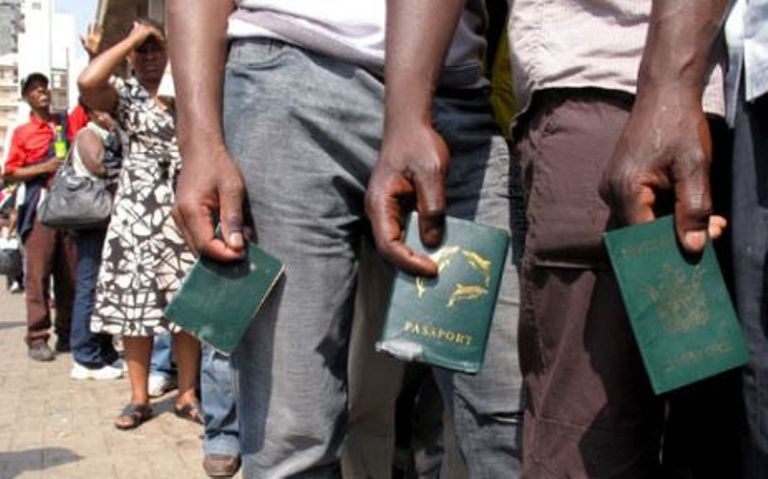
Anti-immigrant online conversations are increasing in SA
Whataboutery is being utilised to divert public attention in the South African online media sphere.

This article was originally written by: Centre for Analytics and Behavioural Change.
Whataboutery is being utilised to divert public attention in the South African online media sphere. On X (formerly Twitter), the tactic is being used to either justify anti-immigrant sentiments and xenophobia or to question why supporters of the ‘Put South Africa First’ narrative seem to focus only on African immigrants.
As fake news busters employ new strategies to help the public identify fact from fiction, the disinformers are also evolving to ensure that the deceptions resemble the truth as closely as possible.
These disinformers have also drawn on the concept of whataboutery to not only spread falsehoods and divide public opinion but to justify support for the anti-immigrant narrative in South Africa.
The tactic of whataboutery has long been in existence. Employers of this tactic often avoid accountability by responding to an accusation by claiming that an offence committed by another is similar or worse, exonerating them in some way from liability for wrongdoing.
Whataboutism often portray the accuser as a hypocrite who has no right to question their motives this way, deflecting instead of addressing the allegation.
XENOPHOBIA AND THE “WHAT ABOUT” DEBATE
The online anti-immigrant conversation continues to be on the rise in South Africa, particularly as the country heads into the 2024 elections.
Several reports by the Centre for Analytics and Behavioural Change (CABC) found that the country’s online anti-immigrant conversation was heavily mobilised for political gain. For example, Gayton McKenzie of the Patriotic Alliance opportunistically stood at the Beitbridge border and made unsubstantiated claims about foreigners from Africa potentially bringing explosives into the country to support his campaign in the build-up to the 2024 elections.
Supporters of this narrative are critical of the government, NGOs, and political parties such as the Economic Freedom Fighters, which has condemned xenophobia and taken a pan-African stance on the matter.
They also criticise the government in their failing to address the issue of immigration and border control within the country, based on allegations of officials in both law enforcement and the department of Home Affairs helping immigrants gain access to the country using fraudulent documents obtained through bribes.
Supporters of the anti-immigrant narrative, which is dominated by hashtags such as #Operationdudula and variations of #PutSouthAfricansFirst, believe that immigrants are responsible for various social ills including crime rates and the elevated levels of unemployment among South Africans.
These proponents are also known for posting exaggerated statistics about the number of immigrants in South Africa as well as crimes they have allegedly committed. Posts ruled as disinformation by Real411, an online platform that classifies posts as fake or authentic, include one blaming NGOs for alleged crimes committed by immigrants; another labelling certain individuals as “illegal” immigrants from Zimbabwe without proof, as well as one claiming that illegal immigrants were responsible for “many farm murders” (Figure 1).
‘Patriotism’ is how some supporters of the anti-immigrant narrative substantiate their calls for immigrants to leave South Africa, not xenophobia. When there are reports of a shortage of resources, followers are quick to place the blame on immigrants in South Africa.
- Whataboutery works in two distinctive ways within the online anti-immigrant conversation. Firstly, it can be used to substantiate calls for immigrants in South Africa to be deported; and secondly, to question the views and actions of supporters of the anti-immigrant narrative.
SUBSTANTIATING CALLS FOR IMMIGRANTS IN SOUTH AFRICA TO BE DEPORTED
Those using whataboutery to substantiate calls for immigrants to be deported argue that their actions are only labelled as xenophobia in South Africa and that when other countries deport immigrants, it is not seen as the same prejudice. These individuals also argue that South Africans are suffering more than immigrants in the country. Whenever news reports surface about immigrants suffering an injustice, their experiences are negated and compared to South Africans who are said to have suffered worse and should be the centre focus. Examples of this practice are illustrated in Figure 2 below.
QUESTIONING THE VIEWS AND ACTIONS OF SUPPORTERS OF THE ANTI-IMMIGRANT NARRATIVE
Those using whataboutery in this manner question why anti-immigrant groups such as Operation Dudula target African immigrants, while their European counterparts remain untouched.
Despite being united in their calls for immigrants to be deported back to their home countries, there seems to be varying opinions on which immigrants should go. While some call for the deportation of all immigrants, others argue that only those in the country without legal documentation should be deported (Figure 3).
.
Others question why these groups seem oblivious to the crimes committed by South Africans, focusing only on those allegedly committed by immigrants.
IS WHATABOUTERY BAD?
Asking “what about” is inherently not a bad thing. It makes us stop and think. However, when used to justify xenophobia, the South African public deserves to be informed of this practice so that they can engage with the content and question why there is diversion from the core concern.
The extent of whataboutery within online anti-immigrant discourse is yet to be measured. According to Xenowatch, a platform that monitors all forms of xenophobic discrimination across South Africa, there have been more than 1,000 incidents of xenophobic discrimination recorded between 1994 and 2023.
